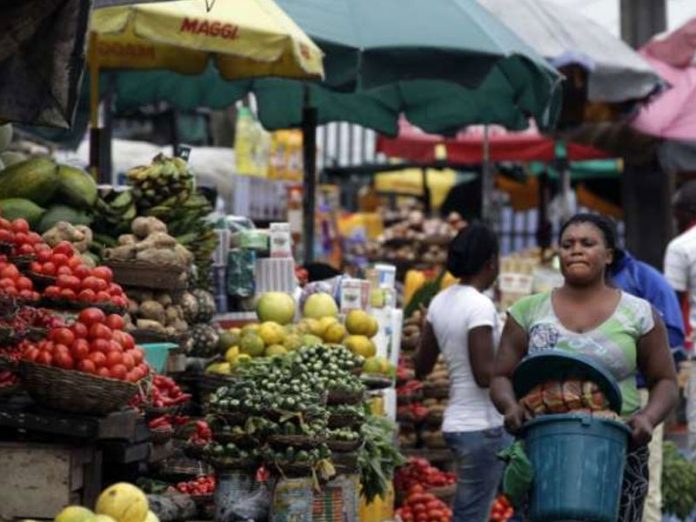On Wednesday, Governor Babajide Sanwo-Olu turned the sod at the construction site of the facility in Ketu-Ereyun, Epe, which is being erected on 1.2 million square metres of land. The largest Food Security Systems and Central Logistics Park in sub-Saharan Africa is now being built in Lagos State.
The establishment of the food park is a part of the bold five-year Agricultural and Food Systems Road Map (2021-2025) that the Sanwo-Olu administration unveiled last year in an effort to increase Lagos’ food sufficiency.
When completed, the central food and logistics centre would ensure that more than 10 million Lagos residents have access to the uninterrupted food supply for at least 90 days at a time while directly benefiting more than five million traders in the agricultural value chain.
Large commercial transactions would be performed in the hub, which will include storage spaces for more than 1,500 vehicles and will daily serve the needs of thousands of operators throughout the food value chain throughout the year. Additionally, it will expand the N5 trillion food industry.
In Lagos, there are reportedly N5 trillion worth of food-related transactions per year, but farmers everyday lose 40% of produce worth millions due to a lack of post-harvest storage systems.
The central food hub, according to Sanwo-Olu, would ensure higher returns for farmers and investors in the agro-allied industry by eliminating multiple layers of middlemen and facilitating easier access to contemporary processing and packaging services.
The governor claimed that the facility’s market matrix would assist the government in gathering important data for public planning and for use by businesses to forecast investment.
He said: “Today’s flag-off of the Food Security Systems and Central Logistics Park is proof of our administration’s commitment to addressing the challenges of stakeholders in the Agri-space and giving hope to the people through improved quality of life. I make bold to say this is one of the most important interventions in the agricultural sector that Nigeria has ever seen. The fact that this project is taking off in Lagos, the fastest-growing sub-national entity, means that it is bound to have a significant national, regional, and continental impact.
“This hub will provide a better buying experience for consumers, and help achieve a reduction in logistics costs while guaranteeing the standardisation of quantity and quality for agricultural products. It also will improve productivity, and guarantee greater returns for farmers, by cutting out several layers of middlemen. It will facilitate improved access to modern processing and packaging services for farmers and generate useful data for the use of government agencies, private sector players, and multilateral agencies.”
Given its accessibility and closeness to rural settlements, Sanwo-Olu claimed that the project’s location was strategically chosen. He vowed that the project would be completed in the fourth quarter of 2024 and said that the state has obtained a well-thought-out financial plan to get things started.
The governor stated that the Lagos agricultural road map aimed to fully leverage all value chains in which the state possessed comparative and competitive advantages with a goal to increase self-sufficiency in food production from 18 to 40%.
The hub, according to the governor, will be added to the list of life-altering projects located in the Epe Division when it is finished, which already includes the 32-metric tonnes per hour Rice Mill in Imota, Agbowa-Ikosi Timberville, and Ketu-Ereyun Psychiatric Hospital, among others.
The development of this all-important Central Logistics Hub will be achieved through a collaboration between the State Government and the private sector and will be implemented through a Design-Build-Finance-Operate-and-Transfer model. At every step of the way, we will be counting on the contributions of the private sector, in terms of financing and technical advisory and support,” Sanwo-Olu said.
Commissioner for Agriculture, Abisola Olusanya, said the current global food shortages were part of the harsh consequences of climate change and global warming, which had led to economic instability in some countries.
















